Crony Capitalism, Supreme Court, Violations of U.S. and International Law
Podcast: Play in new window | Download


Trump Affidavit Contains Broad-Based Probable Cause of Three Federal Crimes
On August 8, FBI agents seized 33 boxes, containers or items of evidence with more than 100 classified records from Donald Trump’s Mar-a-Lago compound. They included information classified at the highest levels. The Department of Justice had applied for the search warrant after Trump stonewalled them for seven months.
A federal judge found probable cause to believe that agents would find evidence of three federal crimes at Mar-a-Lago. They include a violation of the Espionage Act, which has recently been used to prosecute whistleblowers, publishers and journalists who publicize evidence of government wrongdoing.
Trump claims that the documents are his but in fact they belong to the National Archives. He is seeking the appointment a special master to review the documents for possibly privileged material. Attorney General Merrick Garland will use the seized documents to inform his decision about whether to indict Trump and/or his associates.
Guest – Law and Disorder co-host Marjorie Cohn, A former criminal defense attorney and professor emerita at Thomas Jefferson School of Law, Marjorie does frequent written and broadcast commentary about these and other legal and political issues.
—-
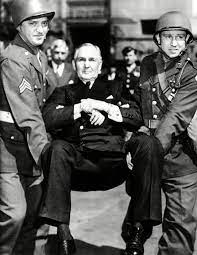

Nationalizing The Fossil Fuel Industry
Thomas Hanna has been Research Director for the Democracy Collaborative since 2015, after working for five years as a research assistant to Gar Alperovitz, co-founder of the Democracy Collaborative and well-known historian and political economist. The Democracy Collaborative was founded in 2000 as a research center at the University of Maryland, to develop a theoretical and historical framework for building a truly democratic society, based on the principles of democratic economy, community wealth building and the democratization of ownership.
Hanna’s areas of expertise include public ownership, privatization, local government, democratic ownership and banking. He is the author and editor of a number of books, articles and reports, including Our Common Wealth: The Return of Public Ownership in the United States which was published by Manchester University Press in 2018.
Hanna’s recent article, The Supreme Court is Gutting the Regulatory State. Let’s Look at our Other Options, published in In These Times, provides a fascinating analysis of the historical evolution of the regulatory system in the United States. Since the New Deal and the end of World War II, the use of regulatory legislation has been used to protect capitalism, based on the notion that “the excesses and injustices of capitalism can be ameliorated primarily through state regulation of private enterprise, rather than large-order shifts in the ownerships of these enterprises.” In his article, Hanna articulately explains how these historical attempts to regulate capitalist power within the context of capitalism is destined to fail because of its own structural limitations.
In the wake of the “existential threat of catastrophic climate change and rising tide of right-wing extremism,” we are seeing – predictably – the explicit dismantling of that regulatory system. Hanna explores the recent rulings from the new right-wing majority on the US Supreme Court, particularly the case of West Virginia v. EPA, in which the court literally kneecapped the agency’s ability reduce the devastating effects of corporate pollution in order to protect private profit and “free enterprise.” Hanna explores an alternative vision of creating a system of economic and political democracy based on public and collective ownership of important assets, enterprises and services, including the fossil fuel industry.
Today’s show is hosted by Heidi Boghosian, Marjorie Cohn, and Julie Hurwitz

———————————————————-
Civil Liberties, Civil Rights, Human Rights, Political Prisoner, Prison Industry, Surveillance, Violations of U.S. and International Law, Whistleblowers
Podcast: Play in new window | Download


Lawsuit Against CIA Filed By Journalists and Lawyers For Alleged Spying During Assange Visits
Journalist Julian Assange, co-founder of WikiLeaks, is in a London prison fighting extradition to the United States. Donald Trump’s CIA director Mike Pompeo was angered by the 2017 WikiLeaks revelation of the CIA’s “Vault 7” program (whereby the CIA was able to tap into people’s cell phones and smart TVs, turning them into listening devices). The Trump administration filed an indictment against Assange which takes aim at him and WikiLeaks for their 2010 exposure of U.S. war crimes in Iraq, Afghanistan and Guantanamo Bay.
The Biden administration is pursuing Assange’s extradition and prosecution. If he is extradited, tried and convicted, Assange could receive 175 years in prison.
When Assange was living in the Ecuadorian embassy in London under a grant of asylum, the CIA hired UC Global, a private security company, to spy on Assange and his visitors and turn over images from the cellphones and laptops of lawyers, journalists and doctors to the CIA.
On August 15, some of the lawyers and journalists who visited Assange sued the CIA and Pompeo in US District Court for violation of their Fourth Amendment rights. They are requesting money damages, an injunction to prevent the CIA from revealing their private communications, and the purging of CIA files of this information.
The lawsuit against the CIA was filed by The Roth Law Firm in New York City.
Guest Attorney Richard Roth, the lead lawyer who represents the plaintiffs. Highly regarded for his successful and creative representation, Roth’s clients include celebrities, nationally recognized artists, singers, actors, songwriters and Hall of Fame and all-star athletes, directors, producers and professional sports organizations. Roth worked in the U.S. Attorney’s office and interned for a judge on the Second Circuit Court of Appeal. The recipient of numerous awards, Roth is a frequent media commentator .
—-


Intelligence Matters: The CIA, the FBI, Saudi Arabia, and the Failure of America’s War on Terror
September 11 will mark the 21st anniversary of the terrorist attack on the World Trade Center and the Pentagon by 19 hijackers. They provided a pretext for the US’s 20-year war in Afghanistan and its subsequent invasion of Iraq, an illegal US war of aggression which was based on a lie that Iraq had weapons of mass destruction. That war killed more than 1 million people.
Today we rebroadcast the Law And Disorder interview we did with retired Florida Senator, the courageous Bob Graham. Graham did more than anyone to expose the connection between the horrific criminal attacks and the complicity of the Saudi government.
The Kingdom of Saudi Arabia has been a US ally in the Middle East for decades. Twenty-one years ago, Saudi officials gave financial, logistical, and other support to the 9/11 hijackers. Fifteen of the 19 men were Saudis.
This explosive history was documented in 2002 in the 28-page final section of the report of The Joint Commission of Inquiry of the Senate and the House, which Senator Graham chaired. These 28 pages were hidden and not declassified and released until July 15, 2016. They were released because of the efforts of Senator Graham and the families of the 9/11 victims. By blocking the release of these pages, Senator Graham states, the US government sent a message to the Saudi government that “they can do anything.”
Graham’s prediction was borne out by the 2018 assassination of the journalist and Saudi citizen Jamal Khashoggi who was murdered and dismembered in the Saudi Arabian embassy in Turkey, by order of Saudi Prince Mohammed bin Salman.
Nevertheless, last month, President Joe Biden traveled to Saudi Arabia to meet with Mohammed bin Salman and greeted him not with a customary handshake but with a collegial fist bump. This occurred despite Biden’s earlier declaration that “Khashoggi was in fact murdered and dismembered and I believe at the order of this crown prince.” Oil and arm sales are the reasons why the United States continues to embrace Saudi Arabia as a close ally. Saudi Arabia has the second largest supply of reserve oil in the world. The US needs it now because of Russia’s war in Ukraine. According to the US State Department statement of May 11, 2022, “Saudi Arabia is the United States‘ largest foreign military sales (FMS) customer with more than $100 billion in FMS cases.”
Law and Disorder co-hosts Heidi Boghosian and Michael Smith interviewed Senator Bob Graham before the missing 28 pages of the 9/11 report were finally released. These pages confirmed Senator Graham‘s belief that the hijackers could not have pulled off the operation alone. It reveals that the hijackers were part of a support network involving the Saudi monarchy and government which helped plan, pay for, and execute the complicated 9/11 plot.
Senator Graham has written the book “Intelligence Matters: the CIA, the FBI, Saudi Arabia, and the Failure of America’s war on Terror.” It provides a candid insight into US and Saudi relations.
Guest – Senator Bob Graham is the former two-term governor of Florida and served for 18 years in the US Senate in addition to 12 years in the Florida Legislature for a total of 38 years of public service. As governor and senator, Graham was a centrist, committed to bringing his colleagues together behind programs that serve the broader public interest. He was recognized by the people of Florida when he received an 83% approval rating as he concluded eight years as governor. Bob Graham retired from public service in January 2005.

—————————————-
Civil Liberties, Civil Rights, Human Rights, Political Prisoner, Torture, Truth to Power, Violations of U.S. and International Law, War Resister, Whistleblowers
Podcast: Play in new window | Download
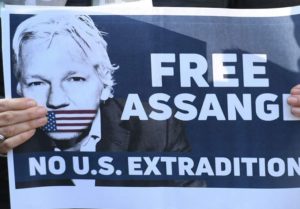
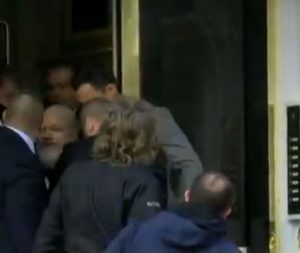
Extradition Of Journalist Julian Assange
On June 17, Priti Patel, the UK Home Secretary, ordered the extradition of journalist Julian Assange to the United States to stand trial on Espionage Act charges that could lead to 175 years in prison. The Obama administration, which prosecuted more whistleblowers than all prior presidents combined, decided not to file criminal charges against Assange. But Donald Trump’s regime indicted Assange for revealing evidence of U.S. war crimes in Iraq, Afghanistan and Guantanamo. And Joe Biden’s government is continuing to pursue the extradition of Assange to the United States.
Assange has been confined in the UK for more than a decade. If he is extradited to the United States, he will be tried in the Eastern District of Virginia, one of the most conservative districts in the country. The judge to whom his case has been assigned jailed Chelsea Manning for refusing to appear before a grand jury investigating Assange.
Assange will appeal Patel’s decision. But if he is ultimately extradited, tried and convicted, it will pose a major threat to investigative journalism. People around the world are supporting Assange but the Biden administration is continuing Trump’s campaign to extradite Assange and try him in the United States.
Guest – Kevin Gosztola, an American journalist who writes about whistleblowers, WikiLeaks, national security and civil liberties. Kevin is managing editor of Shadowproof and he curates The Dissenter. He is producer and host of the weekly podcast Unauthorized Disclosure and co-author of Truth and Consequences: The US vs. Bradley Manning. Kevin has covered the Assange case extensively.
—-
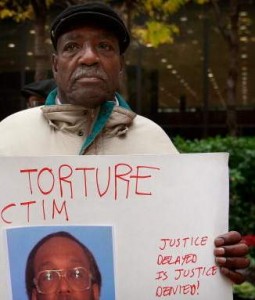
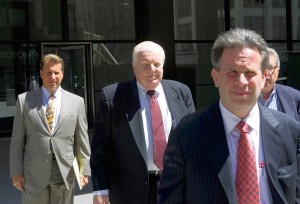
Chicago Torture Cases Cost Taxpayers 210 Million
Sixty years ago, the great social satirist and comedian Lenny Bruce quipped that “Chicago is so corrupt, it is thrilling.“ Today the corruption may not be so transparent but the amount of money spent to protect and defend cops who kill and torture people is staggering.
A few years ago, the city of Chicago sold its parking meters to a private corporation even as it was closing public schools and mental health clinics ostensibly for lack of funding. But as of now and for the last 15 years, Chicago, Cook County and the State of Illinois has spent at least $212 million of taxpayer money for expenses in torture cases involving the infamous Chicago torturing cop, Jon Burge, and his crew. They operated in Chicago’s brutal Area 2 where they extracted false confessions from more than 125 African-American men through the use of torture.
$37.5 million of the $212 million has gone to what has been called “pinstripe patronage lawyers,“ who defended the police torturers. $19-1/2 million has been spent on special prosecutors in Cook County where Chicago is located. At least $38.7 million has been applied to pension payments for the offending cops, $7.9 million has been spent on the state Torture Commission and Court of Claims payouts, and finally, $108.2 million has gone for settlements, verdicts, and reparations. And the cases, and the payments, continue to this day and will continue into the future.
Guest – Chicago civil rights attorney Flint Taylor who led the litigation against Jon Burge and his torture crew. Taylor is a founding partner of the People’s Law Office in Chicago and has represented dozens of clients subjected to torture and other police misconduct. He is the author of The Torture Machine: Racism and Police Violence in Chicago. His most recent case involves the police murder of Joseph Lopez in Greensboro, North Carolina.

————————————-
Civil Liberties, Civil Rights, Human Rights, Violations of U.S. and International Law
Podcast: Play in new window | Download
- Roe v. Wade Editorial by Attorney Jim Lafferty
—-

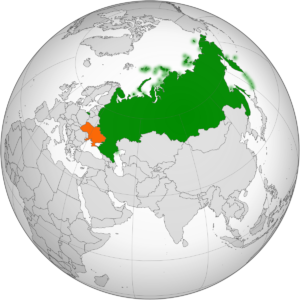
Paralysis In The US Antiwar Movement
The proxy war between the United States and Russia has been going on in Ukraine, according to some, since February. Others argue it’s been happening since 2014 with the U.S.-organized coup which overthrew the elected government of Ukraine and replaced it with a government more favorable to U.S. interests.
The corporate news media in the United States have downplayed the U.S. role in the 2014 coup, which brought fascists into a European country‘s government for the first time since World War II. At that point, the coup government launched a military action against the Russian speaking population of the eastern Donbas region which had declared its independence by a popular vote. This military action by Ukrainian forces resulted in 14,000 deaths.
It is the position of many antiwar activists in the United States that Russia initiated a war of aggression by invading Ukraine this past February. Other antiwar activists say that Russia acted in self-defense, considering what happened in 2014, the expansion of NATO and military bases up to Russia’s borders; they have refused to outright condemn the Russian invasion.
This disagreement has caused a paralysis in the U.S. peace movement. Moreover, the United States has supplied the Ukrainian government with billions of dollars worth of weapons and has demonstrated no inclination to support a cease-fire or a negotiated settlement.
Some have observed that the United States will fight the Russians to the last drop of Ukrainian blood.
The danger of a nuclear conflagration between the United States and Russia, the world’s two most heavily nuclear armed countries, increases daily. The United States has now articulated its goal in the war: to subjugate the Russians and overthrow the Putin government.
For its part, the Ukrainian government is under tremendous pressure from right-wing forces in the country (the same forces that participated with rifle fire in the 2014 coup) to refrain from engaging in peace discussions. The Ukrainian government is operating under martial law and has banned all opposition parties, including socialists and those advocating for negotiations and peace. Repression in Ukraine is being carried out by the SUB, the Ukraine political police, with advice from the CIA.
What will it take to mobilize antiwar Americans so they act together in a unified way? What demands should they raise?
Guest – Medea Benjamin is the co-founder of the women-led peace group CODEPINK and the co-founder of the human rights group Global Exchange. She serves on the CODEPINK Board of Directors and has been an advocate for social justice for more than 40 years. Described as “one of America’s most committed — and most effective — fighters for human rights” by New York Newsday, and “one of the high profile leaders of the peace movement” by the Los Angeles Times, she was one of 1,000 exemplary women from 140 countries nominated to receive the Nobel Peace Prize on behalf of the millions of women who do the essential work of peace worldwide.
—-


Free Speech And Censorship In The United States
We are taught from a very young age that one of the many blessings of living in an open and democratic nation is that we all have the right to say publicly what is on our mind; that free speech is one of the great hallmarks of our democracy. And yet, throughout our nation’s history there have been periods of time when the constitutional guaranty of free speech has been under serious assault. And this is one of those times. Less than 50% of students, as well as all other American adults, feel the right of free speech is fully secure in the United States today. And I’m afraid they are correct.
In recent years a number of public opinion surveys have disclosed that a goodly number of Americans believe people with hateful or very controversial views that might unduly excite people, or insult people, should not be allowed to express those views in the public arena. And this is true of both liberals and conservatives. At least one in four college students think it’s fine to ban highly controversial speakers from their college campus and, in fact, one in six students believe that if all else fails, they can resort to physical intervention to prevent them from speaking on campus.
Well, as the old adage about it not being legally permissible to shout “fire” in a crowded movie theater, what are the limits on free speech today? Should racist speech be allowed? How about misogynous speech? Or pro-Palestinian and anti-Israel speech? Does the fact that our nation is very divided, very tribal today, inform the answers to such questions? Well, we’ve a lot to cover today. Let’s get started.
Guest – Attorney Nadine Strossen is the New York Law School’s John Marshall ll Professor of Law, Emerita. From 1991-2008 she served as the president of the American Civil Liberties Union, the first woman to do so. When she stepped down as ACLU president in 2008, three US Supreme Court Justices participated in her farewell and tribute luncheon: Ruth Bader Ginsburg, David Souter and Antonin Scalia. Her 2018 book, is “HATE: Why We Should Resist It With Free Speech, Not Censorship,” and her earlier book, “Defending Pornography: Free Speech, Sex, and the Fight for Women’s Rights,” was named a “notable book of 1995 by the New York Times.

—————————
Civil Liberties, Climate Change, Human Rights, Truth to Power, U.S. Militarism, Violations of U.S. and International Law, War Resister
Podcast: Play in new window | Download

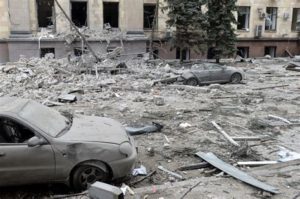
US Petitions The ICC For War Crimes
As the war in Ukraine continues to rage, the U.S. Senate passed a resolution that “encourages member states to petition the [International Criminal Court] or other appropriate international tribunal to take any appropriate steps to investigate war crimes and crimes against humanity committed by the Russian Armed Forces.” Yet the United States has consistently undermined the ICC. The U.S. government thinks the ICC is reliable enough to try Russians but not U.S. or Israeli officials.
Today on Law and Disorder we will examine the matter of what constitutes war crimes, whether war crimes have been committed by either side in Russia’s war in Ukraine, and the role of the International Criminal Court in adjudicating whether or not war crimes have in fact been committed.
Guest – Marjorie Cohn – Law and Disorder co-host, professor emerita at Thomas Jefferson School of Law, former president of the National Lawyers Guild, a member of the advisory board of Veterans for Peace, and the bureau of the International Association of Democratic Lawyers. She writes a regular column on Truthout and provides frequent legal and political commentary for local, national and international media. Her books include Drones and Targeted Killing: Legal, Moral and Geopolitical Issues.
—-
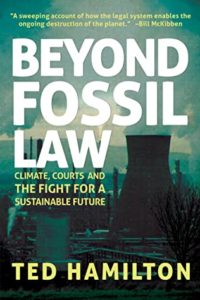

Beyond Fossil Law: Climate, Courts, and the Fight for a Sustainable Future
The technology exists to halt and reverse the ongoing catastrophe of climate change. What is lacking is the political will to do it.
It is legal in the United States to put millions of tons of poison into the air but it is illegal to disrupt this ecocide. Our courts and Congress defend this ecocide. What is to be done?
In 2016, four people known as “the valve turners“ shut down four pipelines in the states of Washington, Montana, Minnesota, and North Dakota. They were arrested and tried. How did the valve turners defend themselves? They mounted the defense of necessity.
The necessity defense is the legal concept that a person can commit a minor crime in order to prevent a larger one. In this case the valve turners admitted to trespass on oil pipeline company property in order to prevent their ongoing contribution to the crisis of climate change.
Guest – Attorney Ted Hamilton, author of the just-published book, “Beyond Fossil Law: Climate, Courts, and the Fight for a Sustainable Future.“ Bill McKibben describes Ted Hamilton book as “a sweeping account of how the legal system enables the ongoing destruction of the planet.“. Ted Hamilton is a climate movement lawyer, writer, and literary scholar. After law school, he co-founded the Climate Defense Project, which provides legal assistance to climate justice activists including the valve turners. He lives in Worcester, Massachusetts.

—————————————-
genocide, Human Rights, Torture, Violations of U.S. and International Law
Podcast: Play in new window | Download

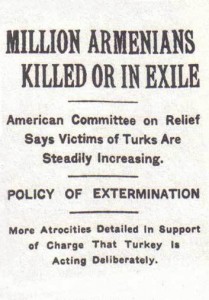
Radio Documentary – It Was Genocide: Armenian Survivor Stories
Around the world, April 24 marks the observance of the Armenian Genocide. On that day in 1915 the Interior Minister of the Ottoman Empire ordered the arrest and hangings of Armenian intellectuals and community leaders in Constantinople. It was the beginning of a systematic and well-documented plan to eliminate the Armenians, who were Christian, and who had been under Ottoman rule and treated as second class citizens since the 15th century.
The unspeakable and gruesome nature of the killings—beheadings of groups of babies, dismemberments, mass burnings, mass drownings, use of toxic gas, lethal injections of morphine or injections with the blood of typhoid fever patients—render oral histories particularly difficult for survivors of the victims.
Why did this happen? Despite being deemed inferior to Turkish Muslims, the Armenian community had attained a prestigious position in the Ottoman Empire and the central authorities there grew apprehensive of their power and longing for a homeland. The concerted plan of deportation and extermination was effected, in large part, because World War I demanded the involvement and concern of potential allied countries. As the writer Grigoris Balakian wrote, the war provided the Turkish government “their sole opportunity, one unprecedented” to exploit the chaos of war in order to carry out their extermination plan.
As Armenians escaped to several countries, including the United States, a number came to New Britain, Connecticut in 1892 to work in the factories of what was then known as the hardware capital of the world. By 1940 nearly 3,000 Armenians lived there in a tight-knit community.
Pope Frances calls it a duty not to forget “the senseless slaughter” of an estimated one and a half million Armenians by the Ottoman Turks from 1915 to 1923. “Concealing or denying evil is like allowing a wound to keep bleeding without bandaging it,” the Pope said just two weeks before the 100th anniversary of the systematic implementation of a plan to exterminate the Armenian race.
Special thanks to Jennie Garabedian, Arthur Sheverdian, Ruth Swisher, Harry Mazadoorian, and Roxie Maljanian. Produced and written by Heidi Boghosian and Geoff Brady.
—-
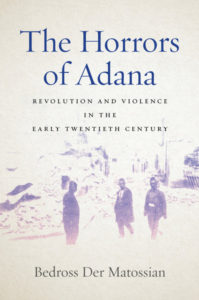
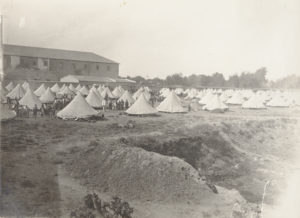
Horrors Of Adana by Bedross Der Matossian
In April 1909, a few years before the 1914 Ottoman massacre of Armenians, two massacres killed more than 20,000 Christians, primarily Armenians. They transpired in Adana, situated on the Mediterranean cost of southern Anatolia. Images of the area after the attacks show unprecedented destruction of a formerly prosperous city. Armenian churches, businesses, and homes were destroyed, and the violence quickly spread across the province and extended outside its eastern borders into the province of Aleppo.
Despite the magnitude of these devastating atrocities, no one was held accountable. In fact, they have have remained largely absent from history books. But that’s about to change.
Guest – Bedross Der Matossian has written a meticulously-researched examination of these events. It’s called The Horrors of Adana: Revolution and Violence in the Early Twentieth Century, and it’s published by Stanford University Press. It’s a detailed exploration of the twin massacres and the events and the economic and sociopolitical transformations leading up to them. He is Associate Professor at the University of Nebraska, Lincoln, and the president of the Society for Armenian Studies. He is the author and co-editor of several books including the award-winning book, Shattered Dreams of Revolution: From Liberty to Violence in the Late Ottoman Empire.

——————————-
























